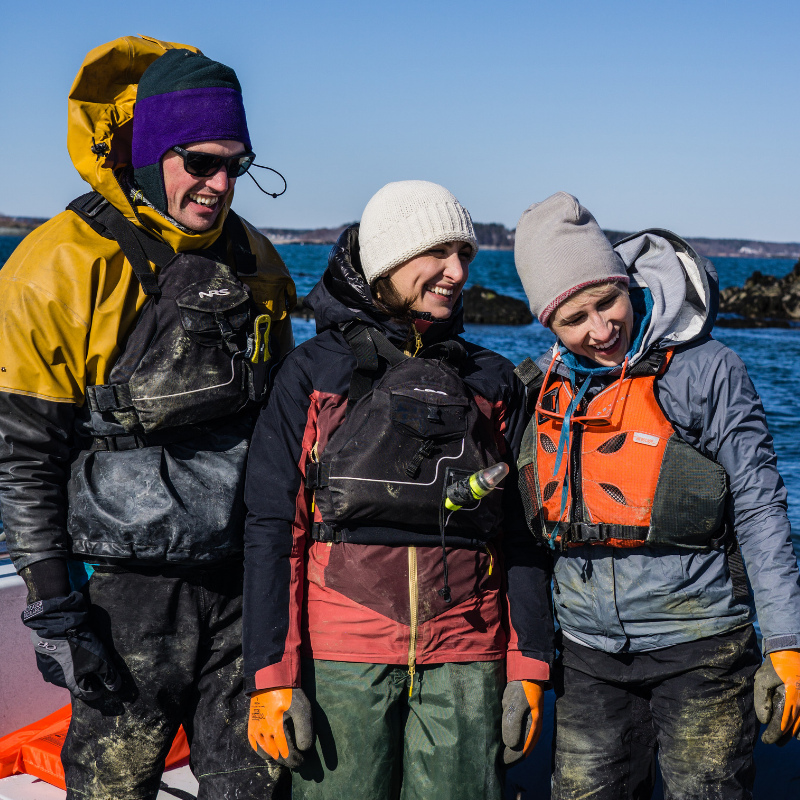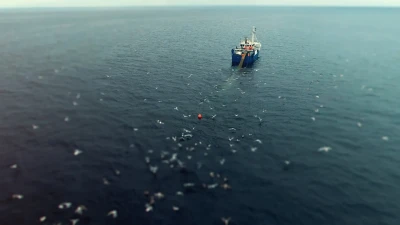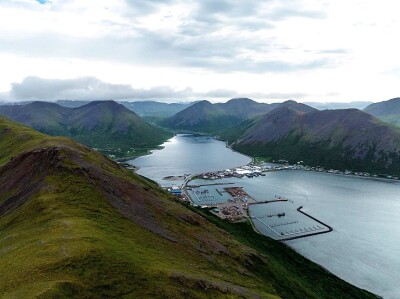It's still ocean approved, it's just not Ocean Approved.
The first commercial seaweed farm in the country has evolved and is growing. With the overhaul comes a name change and more importantly, a new line of seaweed products.
 "Ocean Approved describes what we do, not who we are," said Briana Warner, who took over as CEO of Ocean Approved in July 2018 and has overseen the company's transition to Atlantic Sea Farms. "What we really are is small farms up and down the coast."
"Ocean Approved describes what we do, not who we are," said Briana Warner, who took over as CEO of Ocean Approved in July 2018 and has overseen the company's transition to Atlantic Sea Farms. "What we really are is small farms up and down the coast."
Although the Portland-based company no longer runs its own farm, it still works with 16 partner farms, all based in Maine from Eastport to Portland.
Ocean Approved made a splash with fresh kelp products, including Kelp Slaw Cut, Kelp Cubes and Maine's Own Seaweed Salad.
"Most of the seaweed you can buy in the United States is dried," Warner said. These Gulf of Maine products are "never dried, never dyed."
"In the past, we've been involved with foodservice," Warner said, because of that market's ability to absorb large volumes of fresh seaweed.

Atlantic Sea Farms launches a new line of retail products in April 2019.
Now as Atlantic Sea Farms, the company is launching new products — including Sea-Chi, a seaweed kimchi; a fermented seaweed salad; and Sea-Beet Kraut, made from skinny kelp and beets — and entering the retail space.
The new website launches Monday, April 15 with an e-commerce platform scheduled to go live on April 22.
The new brand is perfectly poised to take off with the rise of kelp.
Seaweed is beloved because it has so many advantages. On a macro scale, it removes carbon and nitrogen from the water, which means it mitigates the effects of ocean acidification, making it a climatic winner. On the micro scale, it is an incredibly healthful, dynamic and versatile food.
In other words, as consumers, we can all find something in seaweed to feel good about. But Warner and her crew are also working with lobstermen and other fishermen to ensure that the business of farming kelp off the coast of Maine doesn't interfere with established fisheries.
"It's good for the consumer, and it's also good for our coastal economy," Warner said.
Atlantic Sea Farms understands that the onus is on them to "prove that it's value added and it doesn't get in the way" of other maritime industries.
Lobstermen make the perfect candidates for kelp farming, Warner said, because the planting, grow-out and harvest seasons all take place in the off-season for lobstering.
"What makes seaweed great is there's not much gear in the water anyway," Warner said. "They have most of their stuff in by the beginning of June."
In fact, the world's first Seaweed Week will take place in Maine April 26-May 4 in celebration of the spring kelp harvest. That's just in time for the company's lobstermen/kelp farmers to be ready for trap hauling ahead of Memorial Day Weekend. Stay tuned here for weekly updates on Maine's seaweed scene and highlights from Seaweed Week.
Why Seaweed Matters is the first of a series of events on the Blue Economy hosted by the New England Ocean Cluster with collaboration from Startup Maine and sponsored by the Maine Center for Graduate and Professional Studies.







